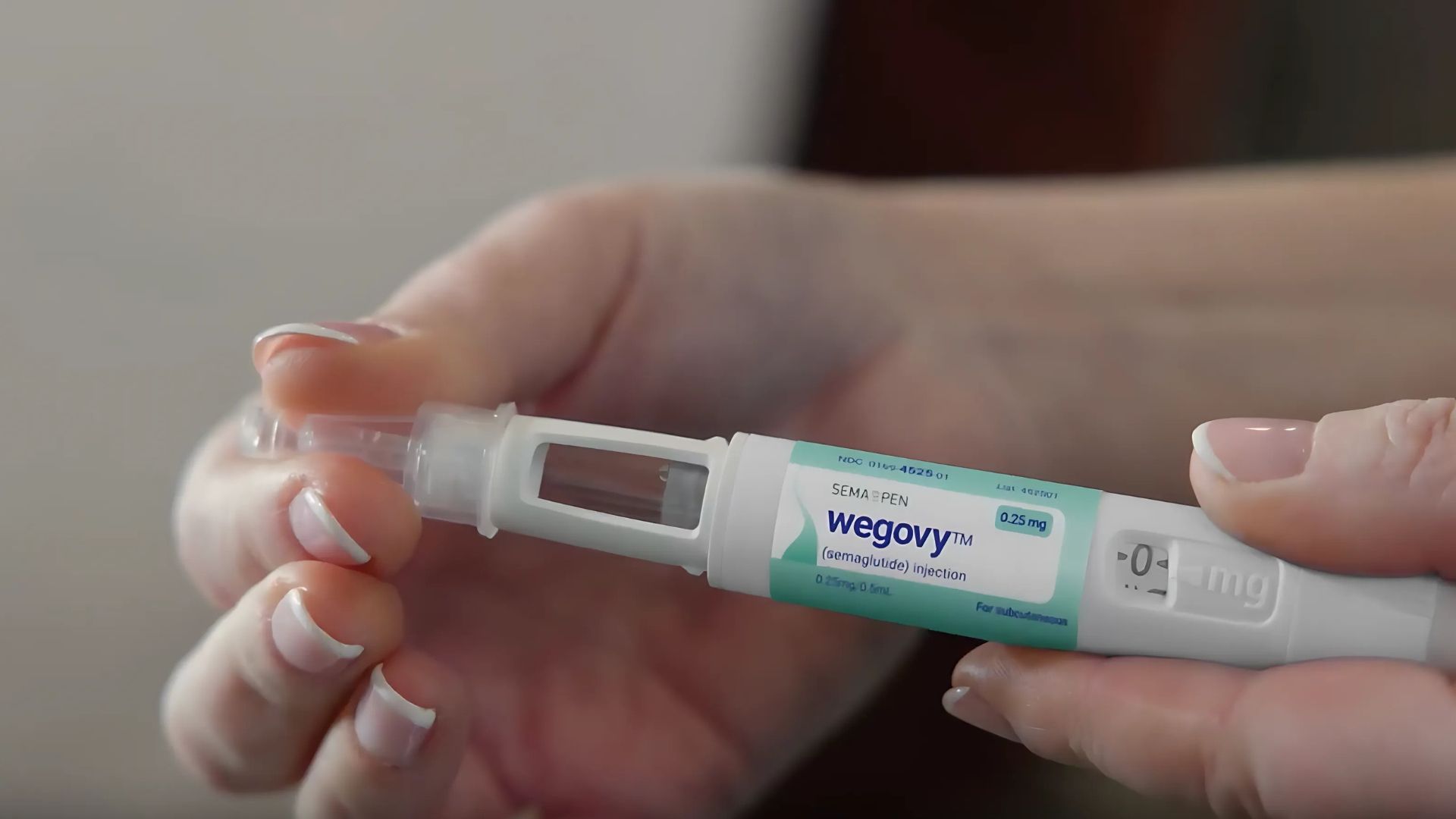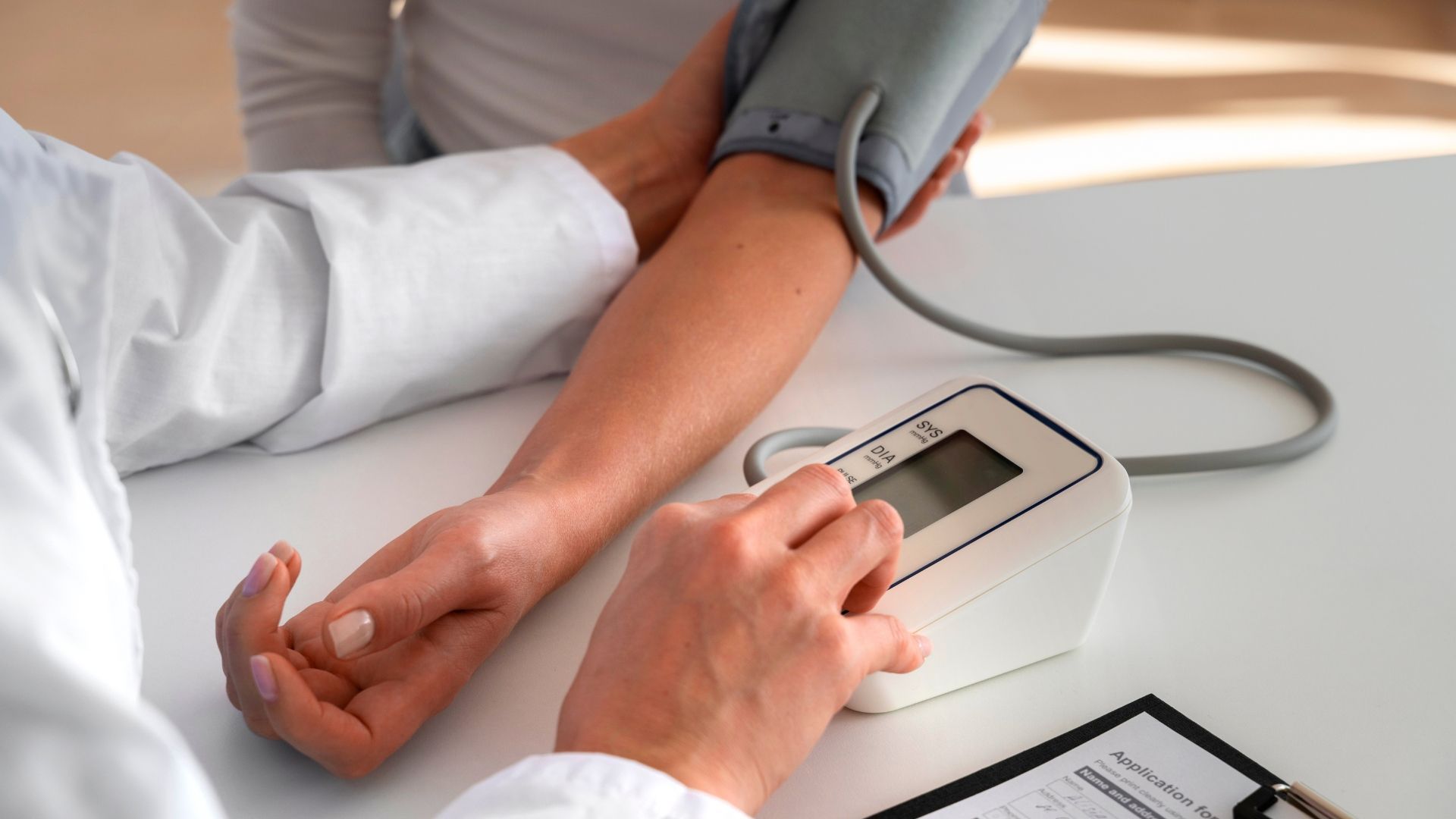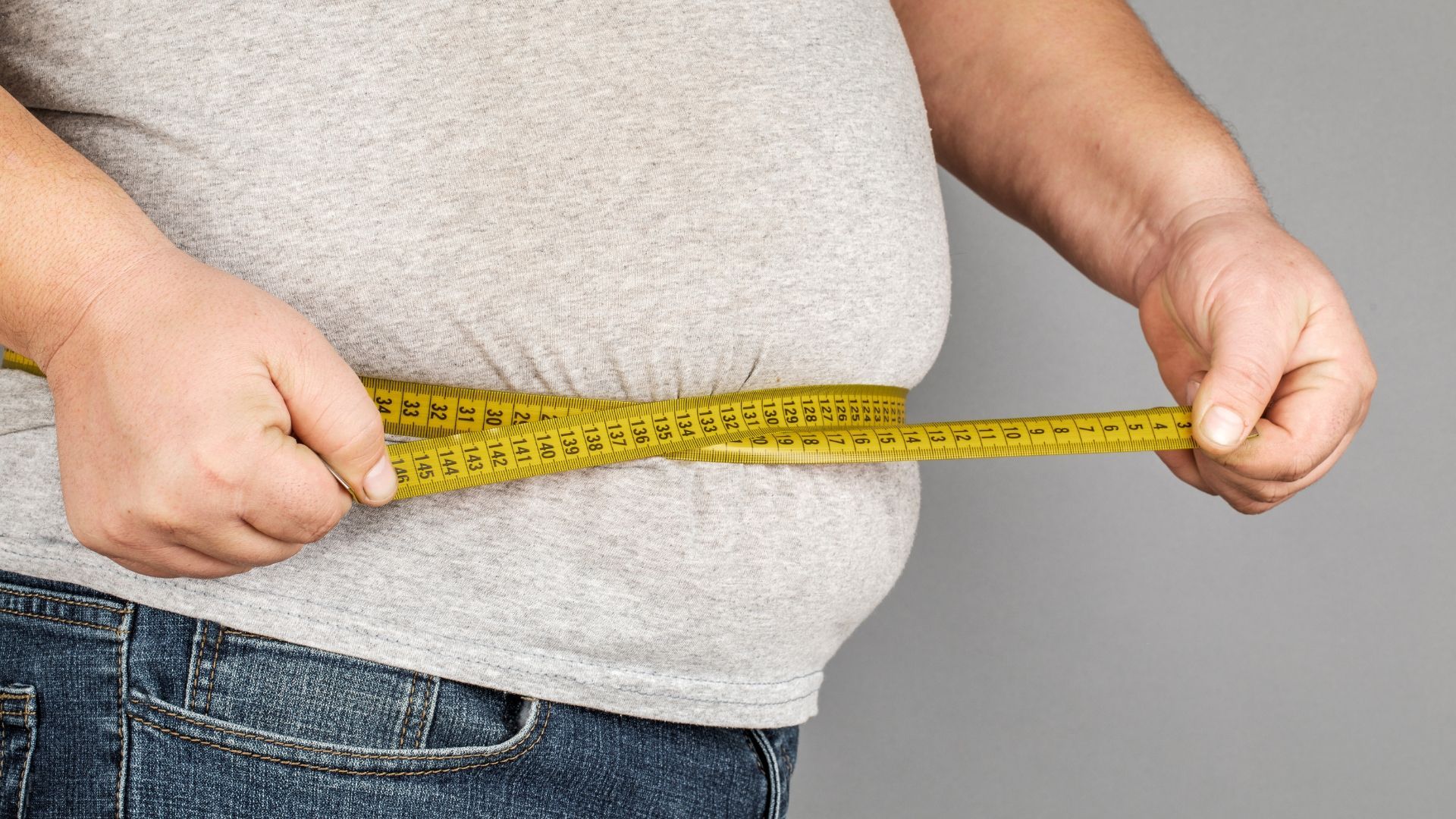The truth about obesity and erectile dysfunction
Can obesity cause erectile dysfunction? And can losing weight help? Find the answers in our expert guide.

Many people living with obesity are aware of many of its potential health risks. You don't have to look far to learn about obesity's links to heart disease, stroke or type 2 diabetes.
But for men living with obesity, there's another risk that's rarely talked about – the link between obesity and erectile dysfunction.
It's not hard to figure out why. Obesity is a delicate subject. Erectile dysfunction, doubly so. Unfortunately, the shame and stigma associated with these conditions mean that the conversations we should be having just don't happen.
As a result, many men who may be affected by obesity and erectile dysfunction are likely unaware that a link between the two exists.
We have two things to say to that.
First, there's no shame in either condition. NHS research from 2022 found that 64% of adults in England are living with overweight or obesity.
And according to a 2018 review, erectile dysfunction affects one in three men.
That's a lot of people. If you're affected, you're certainly not alone.
Secondly, while it's understandably difficult to talk about obesity and erectile dysfunction, it's a conversation worth having. Not least because treating the former can often help with the latter.
Let's start by looking at the link in a little more detail.
Can obesity cause erectile dysfunction?
The straightforward answer is yes. Medical experts are in wide agreement that obesity is a contributing factor to erectile dysfunction and reduced libido (sex drive).
But straightforward answers usually come with caveats. In this case, the caveat is that we don't know whether obesity directly causes erectile dysfunction.
There are many risk factors for erectile dysfunction. Age is perhaps the most notable. But health conditions like cardiovascular disease, high blood pressure and low testosterone can also play a part.
You may have spotted where this is going. Cardiovascular disease, high blood pressure and low testosterone are all linked to – yes – obesity. As one 2018 study put it, erectile dysfunction and obesity may share a 'common soil'.
In other words, what causes what is a bit of a moot question. Obesity is linked to numerous diseases that are also linked to erectile dysfunction. We're dealing with a complex web of causes, conditions and interrelated effects.
The good news is that, as we'll see, treating obesity can help address many of these health conditions. As a result, for many men living with obesity, a knock-on effect of losing weight is improved erectile function.
What are the potential links between obesity and erectile dysfunction?
While the links between obesity and erectile dysfunction aren't fully understood, experts point to several potential risk factors. These include damage to blood vessels, reduced testosterone and oxidative stress.
Damage to blood vessels
Erections happen when blood vessels in the penis dilate (get wider). This allows more blood to flow into the penis, which causes it to become larger and more rigid.
Obesity is often linked with high blood pressure (hypertension), which can damage blood vessels. Anything that damages blood vessels can interfere with erections and make erectile dysfunction more likely.
Reduced testosterone
Testosterone is a sex hormone. All humans have testosterone – but adult men typically make much higher levels of testosterone than women.
Testosterone changes how the body grows and functions. It's one of the main hormones linked with stereotypically male characteristics, such as facial hair and stronger muscles.
It also serves to increase libido. A high libido, in turn, is associated with better erectile function.
Obesity can reduce the amount of testosterone in the body. For some men, this means a lower libido and more difficulty achieving and maintaining erections.
Oxidative stress
Our bodies are full of substances called 'free radicals' and 'antioxidants'. Ideally, these two substances would be in perfect balance. However, when we have more free radicals than antioxidants, we can experience oxidative stress.
Obesity has been associated with oxidative stress, which is believed to play a role in the onset of several serious conditions. That includes cancer, kidney disease and certain types of dementia. And, as you might have guessed, it's also linked to erectile dysfunction.
Associated conditions
It's unclear whether obesity directly causes erectile dysfunction. However, we do know that obesity increases the risk of several diseases that are strongly associated with sexual health problems.
To cite one example, obesity is a known risk factor for type 2 diabetes. Erectile dysfunction is especially common in men living with type 2 diabetes.
Can losing weight help improve erectile function?
For many men living with obesity, the answer is yes.
According to the Obesity Action Coalition, 'losing only 10% of body weight throughout a two-month period will improve erectile function'.
A 2004 study painted a similarly rosy picture. The researchers looked at the effects of healthy eating and exercise on men living with obesity and erectile dysfunction. After making these healthy lifestyle changes and losing weight, around a third of the participants saw an 'improvement in sexual function'.
Of course, 'around a third' isn't everyone. And there's the hitch – it's important to know that losing weight isn't a magic bullet for erectile dysfunction.
That's because erectile dysfunction is a complex condition with many potential causes. As we've seen, obesity can be a contributing factor. But so can lifestyle factors like smoking and substance abuse. And psychological factors, such as stress, anxiety and low self-esteem. And an assortment of physical conditions, ranging from multiple sclerosis to injury.
Our advice – if it doesn't work for you, don't give up hope. There are many medical avenues available that can help address the root causes of erectile dysfunction.
Besides, losing weight has wide-ranging health benefits that can drastically improve your quality of life. Even if it doesn't help with erectile function, it can certainly make you feel happier, healthier and more energetic. And on top of that, it reduces your risk of developing serious health problems like heart disease and stroke.
Are weight loss injections an option?
They certainly are. Injectable GLP-1 RA medications like Wegovy and Mounjaro are proven to be safe and effective weight loss treatments when prescribed by a medical professional.
Over a full course of treatment, Wegovy results in an average weight loss of 15%.
Mounjaro users, meanwhile, typically experience weight loss of around 21%.
As we've seen, weight loss alone can – for some men – improve erectile function. However, we can't yet say whether GLP-1 RAs have a direct effect on sexual health. At least one study has used the injections to explore the effects of weight loss on erectile function in men with low testosterone. However, this study focused on weight loss in general – not on the specific effects of the medication.
But we'll say it again. If you're living with obesity, a healthy, sensible weight loss plan can have profoundly positive and wide-ranging effects on your health – not just sexual health.
If you're interested in losing weight, why not learn more about SemaPen's expert-led weight loss programmes? If you're eligible for treatment, you'll enjoy a host of benefits to help you achieve your goals – and at no extra cost. That includes ongoing support from our specialists, access to the SemaPen app and a set of smart scales that track your progress in the cloud.
Sources
1. https://researchbriefings.files.parliament.uk/documents/SN03336/SN03336.pdf
2. Gerbild, H. et al. (2018) "Physical Activity to Improve Erectile Function: A Systematic Review of Intervention Studies" Sexual Medicine, 6(2) https://doi.org/10.1016/j.esxm.2018.02.001
3. Esposito, K. et al. (2004) "Effect of lifestyle changes on erectile dysfunction in obese men: a randomized controlled trial" JAMA, 291(24) https://doi.org/10.1001/jama.291.24.2978
4. Wilding, J.P.H. et al. (2021) "Once-weekly semaglutide in adults with overweight or obesity" New England Journal of Medicine, 384(11) https://doi.org/10.1056/NEJMoa2032183
5. Jastreboff, A.M. et al. (2022) "Tirzepatide Once Weekly for the Treatment of Obesity" New England Journal of Medicine, 387(3) https://doi.org/10.1056/NEJMoa2206038
This article was reviewed by and approved by Alice Fletcher, Bariatric Dietitian, on 28 February 2025.












